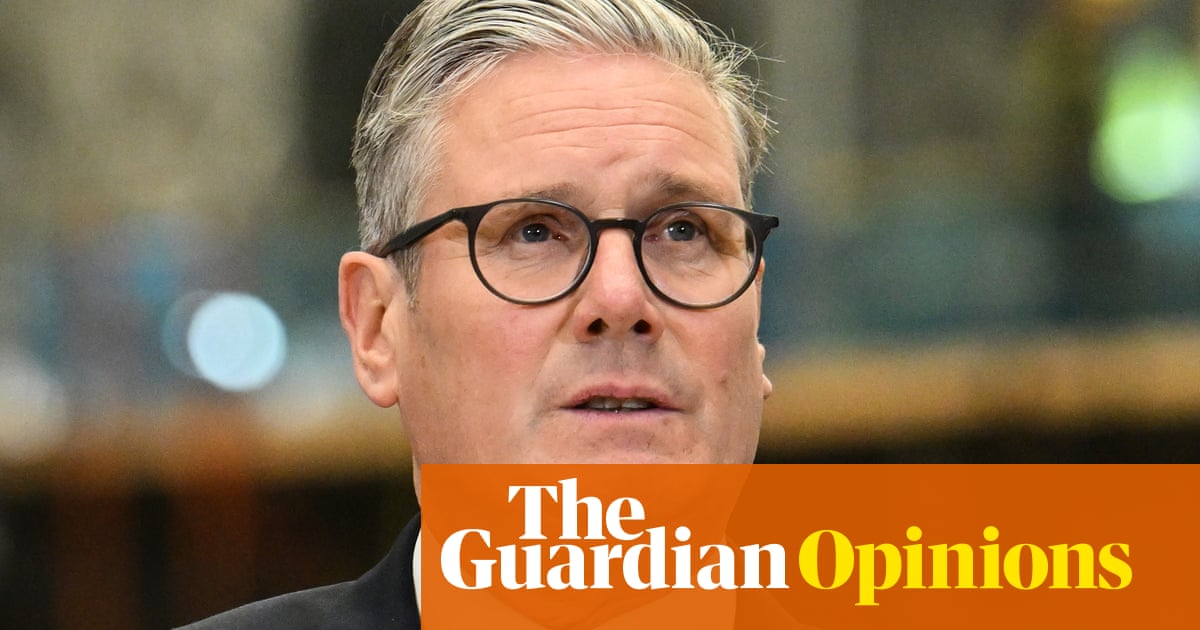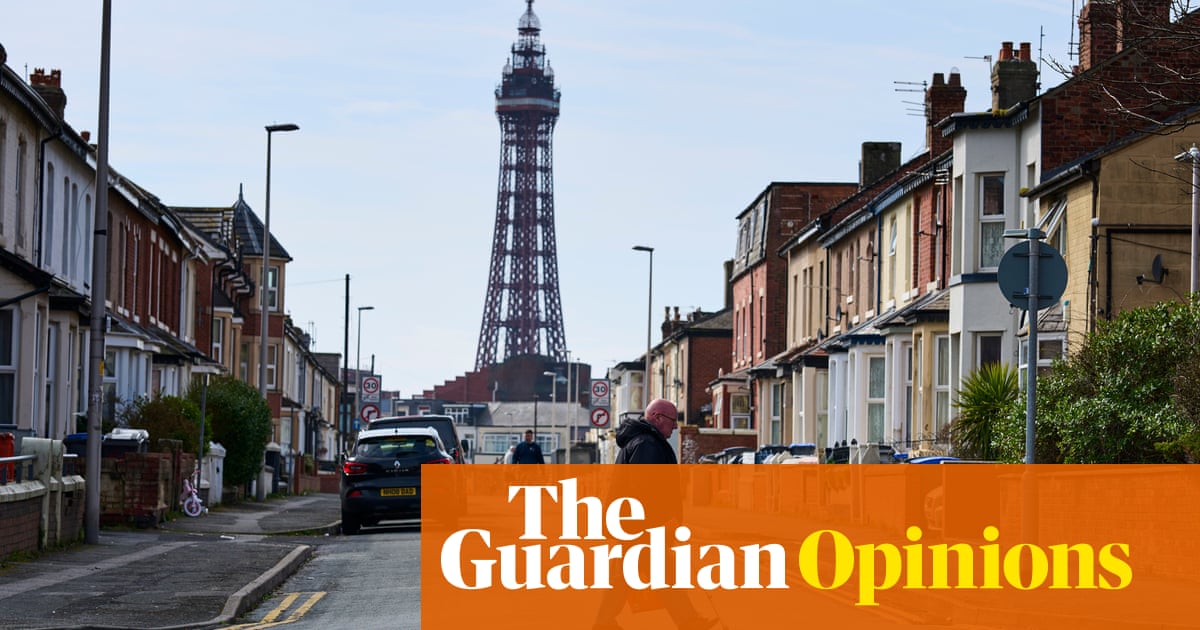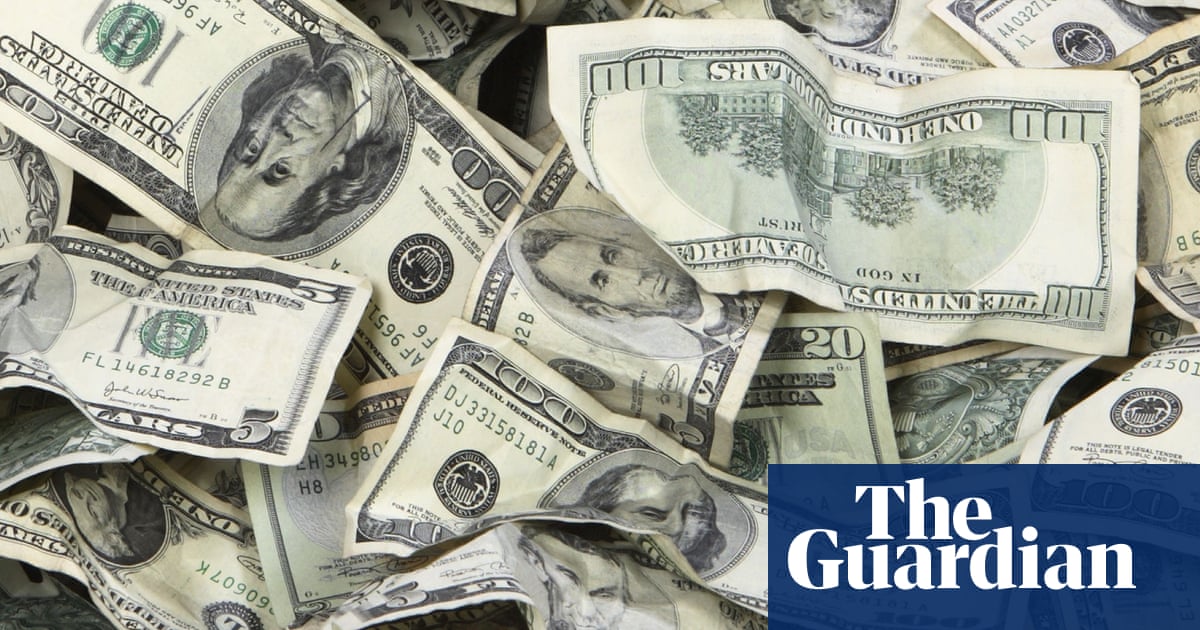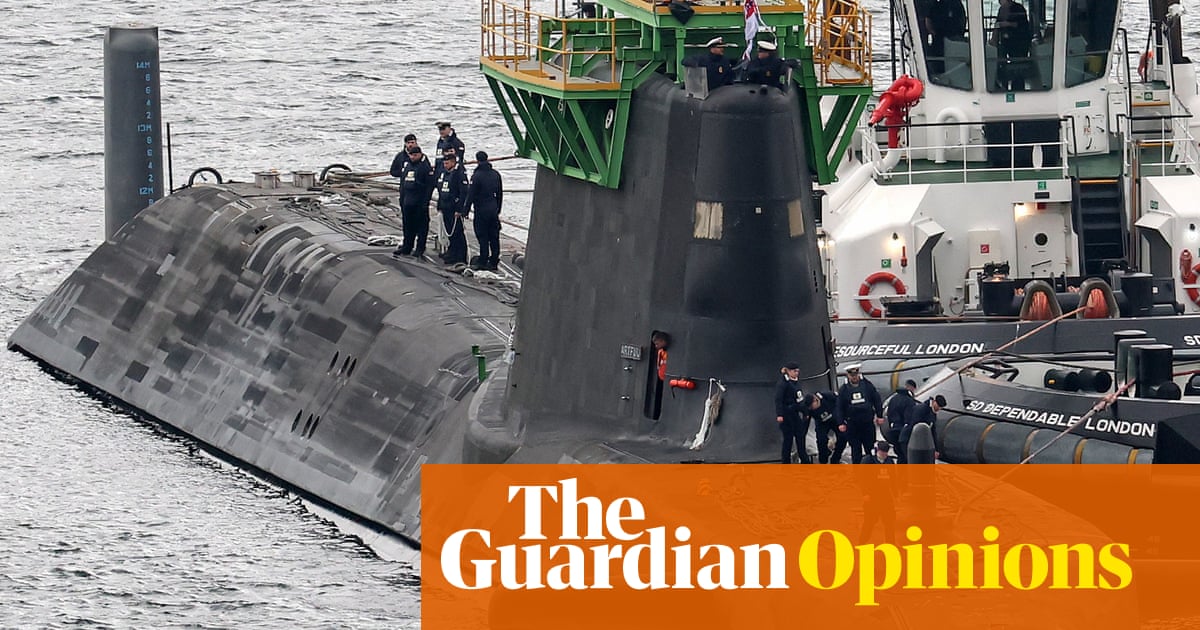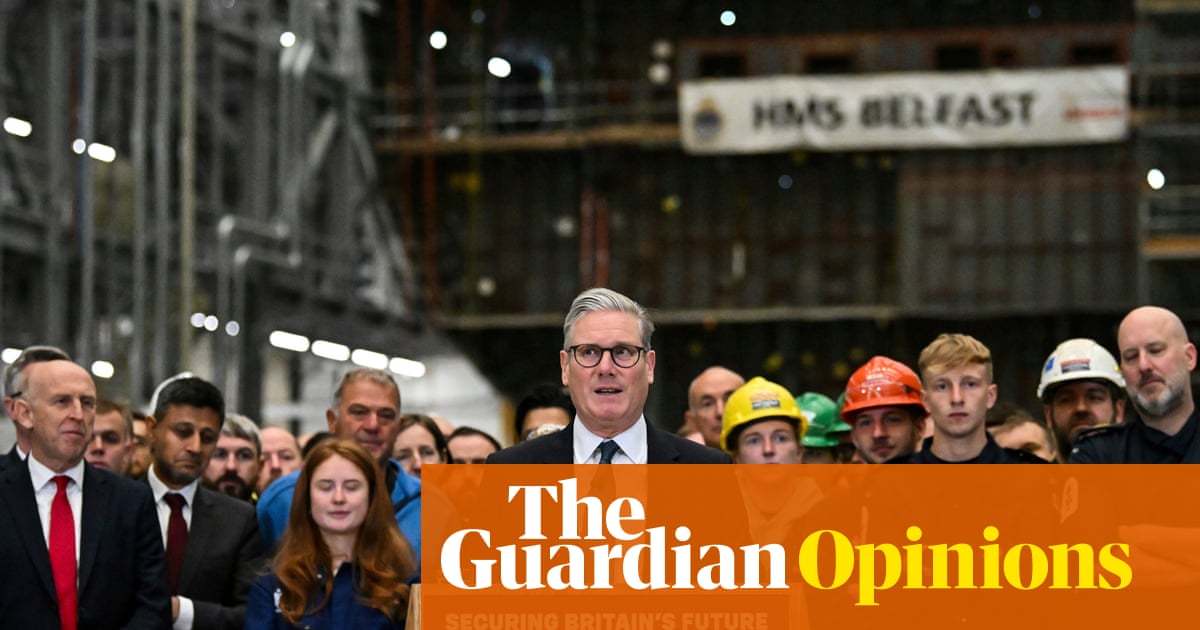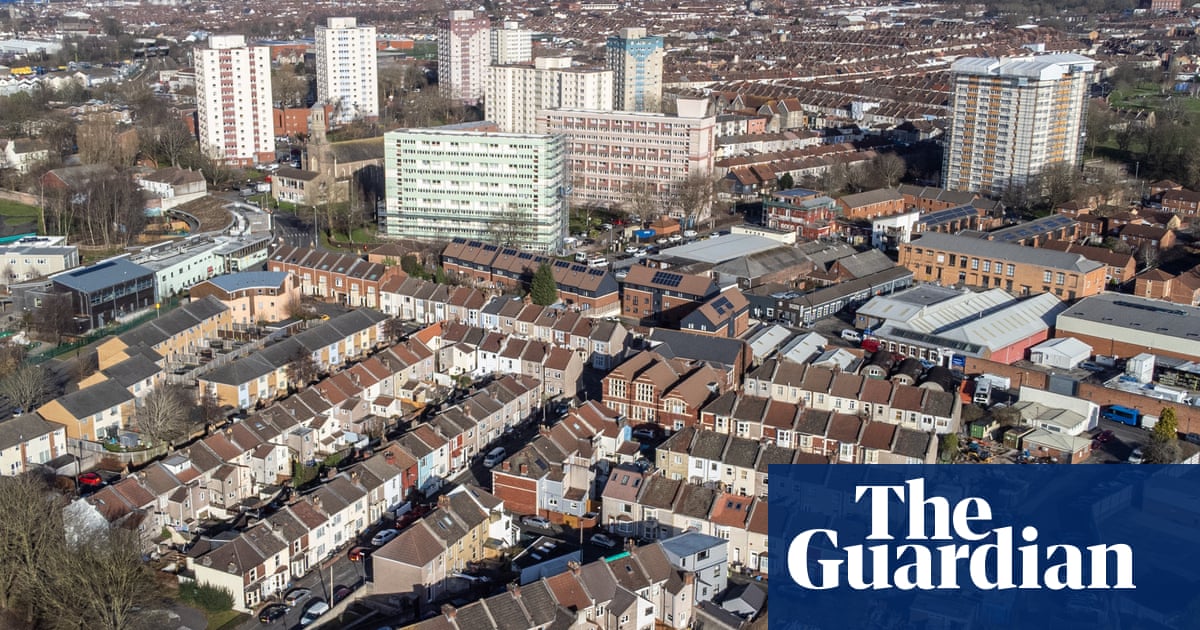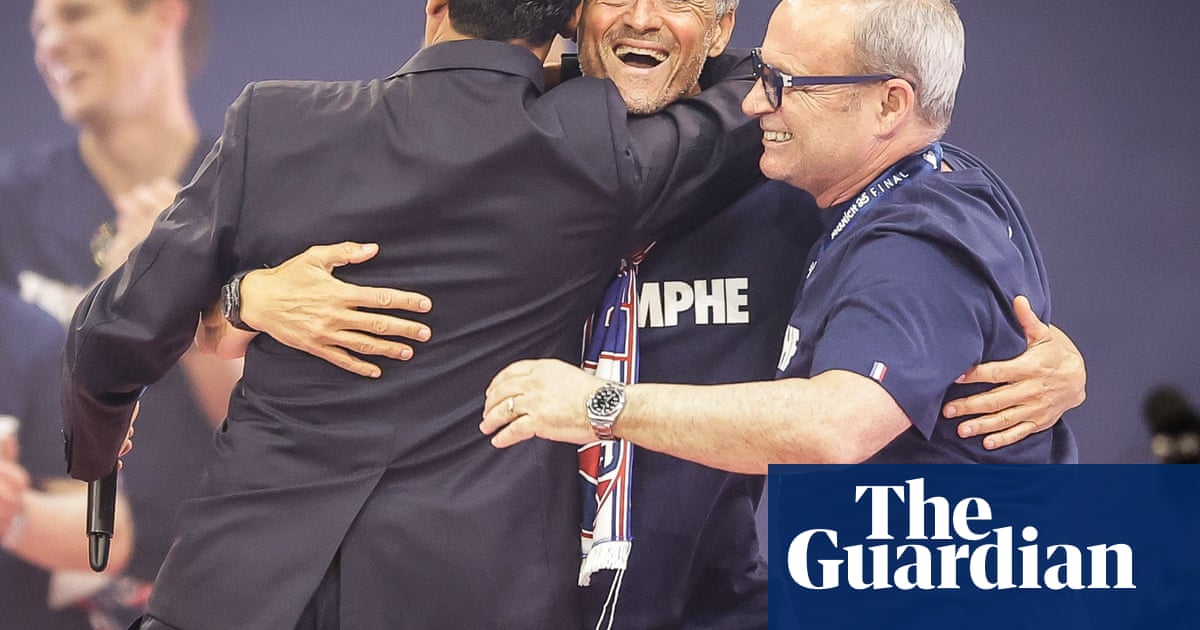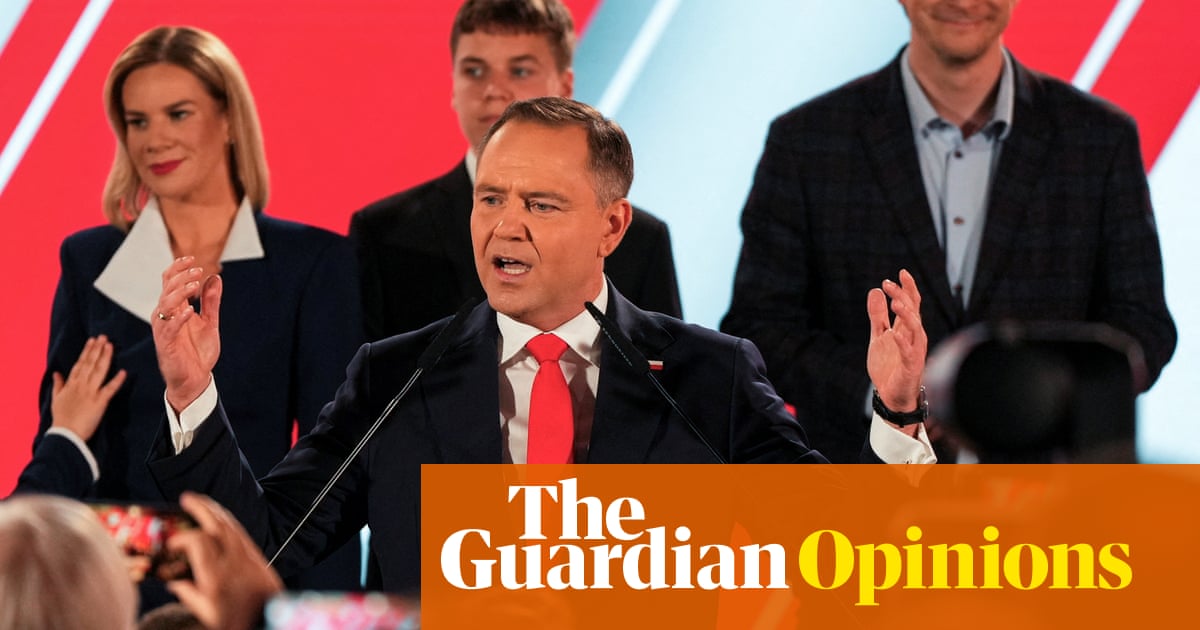'Everything is on the table,' says Scott Bessent on negotiations around EU 'non-tariff barriers'
“Everything is on the table,” Bessent said when asked whether the European Union needed to lower non-tariff barriers including value-added taxes (VAT).
Everything is on the table. The academic literature shows that it’s actually the non-tariff barriers which are harder, both harder to quantify and … they’re more insidious because they’re hidden, they’re obfuscated.
His reference to “non-tariff barriers” mirrors Donald Trump’s comments from the Oval Office yesterday about his qualms with “non-monetary tariffs” regarding the EU, but he was less vague than Bessent, suggesting that EU standards, rules and regulations were “non-monetary barriers” for US companies trying to trade with the bloc.
“It’s not only tariffs, it’s non-monetary tariffs. It’s tariffs where they put things on that make it impossible for you to sell a car. It’s not a money thing. They make it so difficult – the standards and the tests,” Trump said.
“So they come up with rules and regulations that are just designed for one reason: that you can’t sell your product in those countries and we’re not going to let that happen. Those are called non-monetary barriers,” he said.
Key events Show key events only Please turn on JavaScript to use this feature
Trump: 'We are waiting for China to call'
Just to highlight that in that post on Truth Social regarding his call with South Korea’s acting president, Trump said at the end that he is waiting for China to call to begin trade negotiations. Here’s that part:
China also wants to make a deal, badly, but they don’t know how to get it started. We are waiting for their call. It will happen!
Wall Street surges 3% as European markets rebound on trade deal hopes

Graeme Wearden
Stocks are surging on Wall Street at the start of trading.
The S&P 500 share index has jumped by 3.3% as investors pile into stocks, up 169 points at 5,232 points.
The Dow Jones Industrial Average, which tracks 30 large US companies, has surged by 1,380 points, or 3.6%, to 39,346 points. The tech-focused Nasdaq index jumped 3.7%.
Shares are rallying after US Treasury secretary Scott Bessent said that he believes the US can reach “some good deals” with trading partners.
This will bring some relief to stock holders, after the sharp plunge in share values on Thursday and Friday last week.
That follows a wild day’s trading yesterday, in which the Dow ended up down 0.9% while the S&P 500 dropped 0.2% for the day. The Nasdaq was 0.1% up.
Traders appear to be hoping that some of the tariffs announced by Donald Trump last week will be negotiated away, as some countries call the White House to agree talks.
However, as Donald Trump just posted, he is still waiting for the phone to ring from Beijing.
Trump touts 'great' call with South Korean acting president on both tariffs and 'non-tariff subjects'
We haven’t yet had South Korea’s acting president Han Duck-soo’s take on the call, but we have heard from Donald Trump, who has said the call was “great” and that the two leaders discussed tariffs, shipbuilding and potential energy deals as well as other subjects not related to trade and tariffs.
“We have the confines and probability of a great DEAL for both countries. Their top TEAM is on a plane heading to the US, and things are looking good,” Trump said in a post on his Truth Social platform, reiterating that South Korea’s trade minister was on his way to the US to meet with his counterpart for negotiations over tariffs.
Trump said they discussed “tariffs, shipbuilding, large-scale purchase of US LNG and South Korea’s joint venture [with Japan] in an Alaska pipeline” (Bloomberg – paywall – has more on that).
Away from trade and returning to this theme of qualms he has with so-called “non-monetary tariffs” – or, as he puts it here, negotiating “subjects that are not covered by trade and tariffs”, Trump said the two leaders also discussed payment for US military protection.
Here’s the full post:
I just had a great call with the Acting President of South Korea. We talked about their tremendous and unsustainable Surplus, Tariffs, Shipbuilding, large scale purchase of U.S. LNG, their joint venture in an Alaska Pipeline, and payment for the big time Military Protection we provide to South Korea. They began these Military payments during my first term, Billions of Dollars, but Sleepy Joe Biden, for reasons unknown, terminated the deal. That was a shocker to all! In any event, we have the confines and probability of a great DEAL for both countries. Their top TEAM is on a plane heading to the U.S., and things are looking good. We are likewise dealing with many other countries, all of whom want to make a deal with the United States. Like with South Korea, we are bringing up other subjects that are not covered by Trade and Tariffs, and getting them negotiated also. “ONE STOP SHOPPING” is a beautiful and efficient process!!! China also wants to make a deal, badly, but they don’t know how to get it started. We are waiting for their call. It will happen! GOD BLESS THE USA.
South Korea's acting president talks with Trump as trade minister travels to US to negotiate 25% tariff
South Korea’s acting president Han Duck-soo has spoken with Donald Trump over the phone, a day before Trump’s 25% tariff is scheduled to kick in.
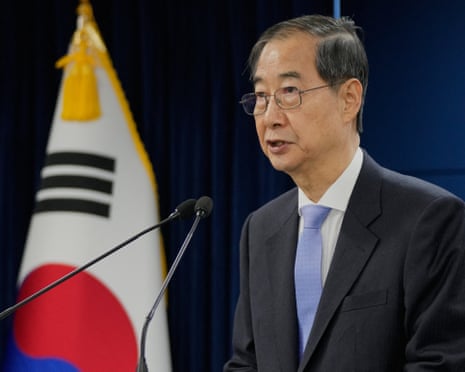
Han vowed an “all-out” response as Asia’s fourth-biggest economy reeled from Thursday’s announcement of 25% tariffs on its exports to the US, with its auto industry expected to be hit particularly hard. He said on Thursday:
As the situation is very grave with the approach of the reality of a global tariff war, the government must pour out all of its capabilities at its disposal to overcome this trade crisis.
It is the first time Trump spoke with any of South Korea’s acting leaders since he took office in January, while now-impeached former president Yoon Suk Yeol, with whom Trump had a phone call the day after his election victory last November, was suspended from duties.
The phone call between Han and Trump also comes as South Korea’s trade minister is traveling to the US to meet with his counterpart for negotiations over tariffs.
Cheong In-kyo, who will meet US trade representative Jamieson Greer during the visit, said on Tuesday that the government has been considering measures to increase imports from the US.
Cheong also said it was good news ahead of his visit that Trump said the door was open for talks over tariffs with nations other than China. (When Trump announced his additional 50% tariff threat on Monday he said all talks with China had been terminated, but later seemed to contradict himself by saying: “We’ll be talking to China.”)
“It is difficult to reduce exports, so shouldn’t we then increase [US] imports? In that regard, we have been reviewing many different packages of measures to resolve the trade balance problem,” Cheong said, before flying to Washington.
He noted that the government had had internal discussions about increasing LNG imports from the US.
Cheong added he will dispute Washington’s calculation of its 25% tariff on South Korea, which he called “problematic” given the two countries’ existing free trade pact.
Trump also announced a 46% duty for Vietnam, where major South Korean conglomerates like Samsung and LG manufacture products. That will deal a “huge blow” to South Korean exporters with production bases there, finance minister Choi Sang-mok said on Tuesday.
Saudi Arabia’s foreign minister Prince Faisal bin Farhan Al-Saud landed in the United States on Tuesday, an official source told Reuters.
He was part of the Saudi delegation that hosted and facilitated talks between the US and Russia in Riyadh in February. We’ll bring you more on his visit as we get it.
Homeland security secretary to waive federal environmental laws for California border wall
Homeland security secretary Kristi Noem has issued a federal notice that she is waiving a slew of environmental and historical preservation laws to facilitate the construction of a barrier wall and roads in the San Diego area, citing illegal border crossings and drug trafficking, reports Law360.
In a notice of determination to be published on Tuesday in the Federal Register, Noem cited the department’s mission to secure US borders and prevent illegal entry into the country as she announced that laws including the National Environmental Policy Act, the Endangered Species Act, the Clean Water Act and the Native American Graves Protection and Repatriation Act will be waived to accommodate the construction work.
It mirror’s Department of Homeland Security policy during the first Trump administration that waived environmental laws and other regulations to “ensure the expeditious construction of barriers and roads” near the US-Mexico border south of San Diego “to deter illegal crossings in areas of high illegal entry into the United States”. Then, as now, the move stemmed from a Donald Trump executive order to move forward with building his border wall.
Trump’s 20 January “Securing Our Borders” executive order was mentioned in the notice, as was a congressional mandate in the Secure Fence Act of 2006, both of which authorize the DHS secretary to maintain operational control of the international land border.
Congress in the Secure Fence Act defines “operational control” as the prevention of all unlawful entries into the United States, including entries by terrorists and other unlawful aliens, as well as the illegal introduction of narcotics and other contraband into the country, Noem’s notice said.
Trump’s order has directed Noem to take all appropriate action “to deploy and construct physical barriers to ensure complete operational control of the southern border of the United States”, according to Noem.
She said the US border patrol San Diego sector is an area of high illegal entry of people and narcotics.
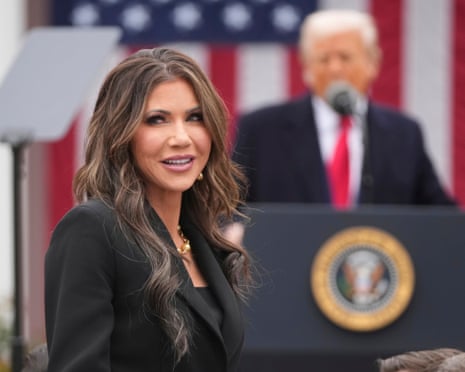
'Everything is on the table,' says Scott Bessent on negotiations around EU 'non-tariff barriers'
“Everything is on the table,” Bessent said when asked whether the European Union needed to lower non-tariff barriers including value-added taxes (VAT).
Everything is on the table. The academic literature shows that it’s actually the non-tariff barriers which are harder, both harder to quantify and … they’re more insidious because they’re hidden, they’re obfuscated.
His reference to “non-tariff barriers” mirrors Donald Trump’s comments from the Oval Office yesterday about his qualms with “non-monetary tariffs” regarding the EU, but he was less vague than Bessent, suggesting that EU standards, rules and regulations were “non-monetary barriers” for US companies trying to trade with the bloc.
“It’s not only tariffs, it’s non-monetary tariffs. It’s tariffs where they put things on that make it impossible for you to sell a car. It’s not a money thing. They make it so difficult – the standards and the tests,” Trump said.
“So they come up with rules and regulations that are just designed for one reason: that you can’t sell your product in those countries and we’re not going to let that happen. Those are called non-monetary barriers,” he said.
China tariff escalation is 'a big mistake', says US treasury secretary Scott Bessent after China rejects Trump's threats
US treasury secretary Scott Bessent has been on the airwaves this morning, telling CNBC that “China’s escalation is a big mistake” and insisting that the US has the upper hand in the trade war brewing between Washington and Beijing.
I think it was a big mistake, this Chinese escalation. We are the deficit country. So what do we lose by the Chinese raising tariffs on us? We export one fifth to them of what they export to us. So that is a losing hand for them.
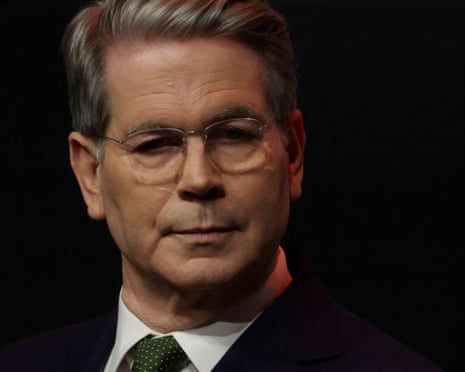
Yesterday Donald Trump threatened China with an additional 50% tariff (on top of the 20% and 34% he previously announced) if it did not withdraw its retaliatory levies – due to take effect tomorrow.
Bessent’s language echoes that of China’s commerce ministry, which last night rejected Trump’s threats as a “mistake on top of a mistake” and accused the US of “blackmail”. It vowed to “resolutely take countermeasures”, adding:
China will fight to the end if the US side is bent on going down the wrong path.
Bessent also claimed that US tariff negotiations are the result of calls from other countries and not sliding financial markets.
Related: Wall Street traders on Trump tariffs: ‘Without doubt, we’re hitting a recession’
About 70 countries have reached out to the White House to begin talks, Bessent said, adding that Trump will be personally involved in trade negotiations.
You can watch the full interview here.
President Donald Trump will sign executive orders on Tuesday aimed at boosting the nation’s coal industry, sources familiar with the matter told Reuters.
Trump, who campaigned on a promise to increase US energy production and has sought to roll back a wide range of energy and environmental regulations since taking office 20 January, is scheduled to sign energy-related orders at the White House at 3pm, the White House said.
Trump plans to sign several executive orders directing the Interior and Energy Departments to take actions to support the industry, according to a source briefed on the details of the event. Both sources requested anonymity because they were not authorized to speak publicly.
The actions will also include efforts to save coal plants at risk of retirement, the source said.
The European Union still wants to avoid a trade war with the United States despite Donald Trump’s administration’s rejection of the “zero for zero” offer on all industrial goods put forward by Brussels, an EU spokesperson told reporters on Tuesday.
White House trade adviser Peter Navarro said on Monday that the European Union needed to lower its non-tariff barriers, including those created by value-added taxes and food safety regulations, if it wanted to reach a deal.
“The situation hasn’t changed. We want to avoid tariffs … we are waiting for our American counterparts to engage in a meaningful way,” he said.
President Donald Trump made a surprise announcement on Monday that the United States and Iran were poised to begin direct talks on Tehran’s nuclear program, but Iran’s foreign minister said the discussions in Oman would be indirect.
In a further sign of the difficult path to any deal between the two geopolitical foes, Trump issued a stark warning that if the talks were unsuccessful, “Iran is going to be in great danger.”
Iran had pushed back against Trump’s demands in recent weeks that it directly negotiate over its nuclear program or be bombed, and it appeared to be sticking to that position on Monday.
“We’re having direct talks with Iran, and they’ve started. It’ll go on Saturday. We have a very big meeting, and we’ll see what can happen,” Trump told reporters in the Oval Office during a meeting with visiting Israeli prime minister Benjamin Netanyahu.
Tesla CEO Elon Musk made direct yet unsuccessful appeals to US president Donald Trump to reverse tariffs over the past weekend, Washington Post reported on Monday citing two people familiar with the matter.
This exchange marks the highest profile disagreement between the President and Musk, the report said. It follows Trump’s unveiling of a 10% baseline tariff on all imports to the US along with higher duties on dozens of other countries.
The White House and Musk did not immediately respond to Reuters requests for comment.
Musk called for zero tariffs between the US and Europe during a virtual interaction at a congress in Florence of Italy’s right-wing, co-ruling League Party over the weekend.
Tesla has seen its quarterly sales drop sharply amid a backlash against Musk’s work with a new “Department of Government Efficiency.” The company’s shares are trading at $233.29 as of its last close on Monday, down over 42% since the beginning of the year.
Musk has previously said that the impact of Trump’s auto tariffs on Tesla is “significant.”
President Donald Trump is seeking to expand the mining and use of coal inside the country in a bid to power the boom in data centers, Bloomberg News reported on Tuesday, citing a senior White House official.
In an executive order that Trump is expected to sign on Tuesday afternoon, he will set out a number of steps by the government designed to reinvigorate the coal industry, the report said.

Marina Dunbar
A mother and her three children who were taken into custody by Immigration and Customs Enforcement (Ice) agents as part of a sweep in the tiny hometown of the Trump administration’s “border czar”, Tom Homan, have been released following days of outcry from community figures, advocates and protesters calling for their freedom.
Over the weekend, about a thousand protesters marched outside of Homan’s home in a small New York village, calling for the release of the family after they were detained last month. The family has not been named or spoken out publicly.
Jaime Cook, principal of the Sackets Harbor school district where the children reportedly attended class, wrote a letter to the community pleading for the students’ safe return.
She described the students as having “no ties to criminal activity” and that they are “loved in their classrooms”.
“We are in shock,” the letter reads. “And it is that shared shock that has unified our community in the call for our students’ release.”
The family was taken into custody in a 27 March raid at a large dairy farm in the remote town that has a population of fewer than 1,500 in Jefferson county in north-western New York state, on Lake Ontario near the Canadian border. The target of the raid was reportedly a South African national charged with trafficking in child sexual abuse material, whom they apprehended, Customs and Border Protection (CBP) agents said.
But authorities separately picked up and detained the family, as well as three other immigrants they said were without documentation. The family was moved to the Karnes county immigration processing center, a privately run detention facility in Texas, by 30 March.
Defense secretary Pete Hegseth landed in Panama late on Monday for his first official visit to the country as questions persist about President Donald Trump’s repeated vows to take back the Panama Canal.
During his trip this week, Hegseth will meet Panamanian officials as well as defense leaders from other Central American nations who are attending a security conference in Panama City.
Trump administration weighs drone strikes on Mexican cartels, NBC News reports
President Donald Trump’s administration is considering drone strikes on drug cartels in Mexico to combat trafficking across the southern border, NBC News reported on Tuesday.
It cited six current and former US military, law enforcement and intelligence officials with knowledge of the matter.
Netanyahu discusses Gaza and tariffs with Trump at White House meeting

Léonie Chao-Fong
The Israeli prime minister, Benjamin Netanyahu, met with Donald Trump on Monday for the second time since the US president’s return to office, marking the first effort by a foreign leader to negotiate a deal after Trump announced sweeping tariffs last week.
Speaking alongside Trump in the Oval Office, Netanyahu said Israel would eliminate the trade deficit with the US. “We intend to do it very quickly,” he told reporters, adding that he believed Israel could “serve as a model for many countries who ought to do the same”.
Trump said the pair had a “great discussion” but did not indicate whether he would reduce the tariffs on Israeli goods. “Maybe not,” he said. “Don’t forget we help Israel a lot. We give Israel $4bn a year. That’s a lot.”
Trump denied reports that he was considering a 90-day pause on his tariff rollout. “We’re not looking at that,” he told reporters. “We have many, many countries that are coming to negotiate deals with us, and there are going to be fair deals.”
European markets open higher after global sell-off driven by Trump tariffs
European stock markets have risen on Tuesday in early signs of a rebound from the punishing global sell-off triggered by US trade tariffs.
Stock markets in the UK and across the EU were in positive territory in early trading on Tuesday, as some investor optimism returned after heavy falls as a result of Donald Trump’s “liberation day’” tariff announcements last Wednesday.
London’s FTSE 100 index of blue-chip stocks was 106 points higher, up 1.4%, at 7811. In Frankfurt, Germany’s Dax was 1.5% higher while France’s CAC jumped by 1.4%. The pan-European Stoxx 600 index rose 1.4%.
On the FTSE, theindustrial companies Rolls-Royce and BAE Systems were the biggest risers, up 5% and 4% respectively, followed by miners, oil companies and banks.
Investors are hoping that the market could stabilise as reports have emerged that the US Treasury secretary, Scott Bessent, will lead trade talks with Tokyo, in a sign that the Trump administration will be open to negotiate on tariffs.
The news drove a modest rebound in Asian markets overnight, led by Japanese stocks. Tokyo’s Nikkei index recovered by 5.6%, while Hong Kong’s Hang Seng index rose by 1.6% after its steepest drop since the 1997 Asian financial crisis on Monday.
China dismisses Trump's threat of extra 50% tariffs as his deadline looms
Good morning and welcome to the US politics live blog. My name is Tom Ambrose and I’ll be bringing you all the top news lines over the next few hours.
We start with news that Donald Trump has threatened to impose an additional 50% tariff on imports from China on Wednesday unless the country rescinds its retaliatory tariffs on the United States by Tuesday.
The news comes on the third day of catastrophic market falls around the globe since Trump announced his trade war last Wednesday with tariffs on the US’s trading partners.
As part of that move the White House announced it would impose a 34% tariff on Chinese imports. In response, Beijing announced a 34% tariff on US imports.
In a statement on Truth Social on Monday morning, the US president said that China enacted the retaliatory tariffs despite his “warning that any country that Retaliates against the U.S. by issuing additional Tariffs” would be “immediately met with new and substantially higher Tariffs, over and above those initially set”.
“If China does not withdraw its 34% increase above their already long term trading abuses by tomorrow, April 8th, 2025, the United States will impose ADDITIONAL Tariffs on China of 50%, effective April 9th,” Trump wrote.
“Additionally, all talks with China concerning their requested meetings with us will be terminated!” he added. “Negotiations with other countries, which have also requested meetings, will begin taking place immediately.”
China’s US embassy said on Monday it would not cave to pressure or threats over the additional 50% tariffs. “We have stressed more than once that pressuring or threatening China is not a right way to engage with us. China will firmly safeguard its legitimate rights and interests,” Liu Pengyu, an embassy spokesperson, told Agence France-Presse.
Read the full report here:
In other news:
-
Donald Trump took questions from reporters during an Oval Office meeting with Israeli prime minister Benjamin Netanyahu today. In it, Trump indicated that he would attend “direct talks” with Iran on Saturday, that it “would be a good thing” to have the United States “controlling and owning the Gaza Strip”, and that European Union “rules and regulations” are “non-monetary barriers” on trade.
-
Shortly after Trump’s meeting with Netanyahu, Iranian officials and state media disputed Trump’s claims that the US is scheduled to participate in “direct talks” with the country this weekend, indicating that the country understood it was entering indirect talks moderated by Omani officials.
-
In a 5-4 decision, the US supreme court will allow the Trump administration to continue deporting Venezuelan migrants under an 18th-century wartime law.
-
After a phone call with Japanese prime minister Shigeru Ishiba this morning, Trump directed US treasury secretary Scott Bessent to open negotiations with the Japanese government.
-
During speeches this afternoon, Democratic leadership in the House and Senate warned that Trump’s tariffs are teeing up “a nationwide recession”.
-
After US stock markets opened this morning on bear market territory, the Cboe Volatility Index, also known as Wall Street’s “fear gauge”, reached “crisis levels” as it skyrocketed to its highest level since the Covid-19 pandemic.
-
Canada has requested World Trade Organization (WTO) dispute consultations with the US over Trump’s decision to impose a 25% duty on cars and car parts from Canada, the WTO said today.
-
Mexico is seeking to avoid retaliatory tariffs against the US but is not ruling them out, Mexican president Claudia Sheinbaum said.
-
The US Conference of Catholic Bishops is ending a half century of partnerships with the federal government to serve refugees and children, saying the “heartbreaking” decision follows the Trump administration’s abrupt halt to funding for refugee resettlement.
-
Health secretary Robert Kennedy Jr will direct the CDC to stop recommending states add fluoride to their drinking water.
-
In a social media post, Trump backed the Senate’s budget proposal – lending his support to the plan as House speaker Mike Johnson tees up a vote on the budget later this week despite still not having enough votes to guarantee its passage.

.png) 1 month ago
41
1 month ago
41
